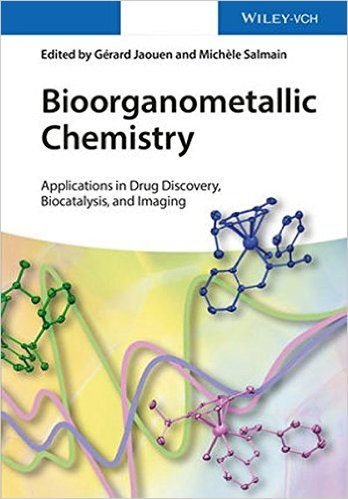 [内容简介]
[内容简介]
An up-to-date reference reflecting the significant advances and important breakthroughs made in this emerging discipline over the last decade.
As such, the book provides an overview of the latest developments and future trends in the field, focusing on such applications as the development of potentially active organometallic drugs against incurable diseases, as well as in such areas as catalysis, energy, analytical chemistry, and imaging.
The renowned editor, who established the term "bioorganometallics", and his international team of experts have put together a valuable resource for researchers in organometallic, inorganic, medicinal, and biochemistry.
[目录]
Preface
PART I: Medicinal Chemistry
ORGANOMETALLIC COMPLEXES AS ENZYME INHIBITORS: A CONCEPTUAL OVERVIEW
Introduction
Organometallic Compounds as Inert Structural Scaffolds for Enzyme Inhibition
Organometallic Compounds Targeting Specific Protein Residues
The Bioisosteric Substitution
Novel Mechanisms of Enzyme Inhibition with Organometallic Compounds
Organometallic Compounds as Cargo Delivers of Enzyme Inhibitors
Organometallic Enzyme Inhibitors for Theranostic Purposes
Conclusion
THE BIOLOGICAL TARGET POTENTIAL OF ORGANOMETALLIC STEROIDS
Introductory Note on Nuclear Receptors
Steroids and Organometallics: An Overview of the Transitional Period from the Use of Organometallics in Synthesis to the Emergence of Bioorganometallics
Epilog
CHIRALITY IN ORGANOMETALLIC ANTICANCER COMPLEXES
Introduction
Chirality in Arene Complexes
CIP System for the Nomenclature of Chiral-at-Metal Arene Complexes
Chiral Organometallic Complexes as Anticancer Agents
Half-Sandwich Complexes with Chiral Metal Centers
Conclusions
GOLD ORGANOMETALLICS WITH BIOLOGICAL PROPERTIES
Introduction: The Use of Gold in Medicine
Anticancer Gold Organmetallics and Proposed Biological Targets
Conclusions and Perspectives
ON THE MOLECULAR MECHANISMS OF THE ANTIMALARIAL ACTION OF FERROQUINE
History and Development
Mechanism(s) of Action 4-Aminoquinoline Antimalarials
Mechanism(s) of Action of Ferroquine as an Antimalarial
Conclusion
METAL CARBONYL PRODRUGS: CO DELIVERY AND BEYOND
Introducing CO in Biology
Therapeutic Delivery of CO
Biological and Therapeutic Results Obtained with the Early-Stage CORMs
Beyond the Early-Stage CORMs: Strategies for Finding New Candidates
Intracellular Detection of CORMs, Mechanistic Studies, and Other Unanswered Questions
Designing Pharmacologically Useful, Drug-like CORMs
Final Remarks and Perspectives
DINITROSYL IRON COMPLEXES WITH NATURAL THIOL-CONTAINING LIGANDS: PHYSICOCHEMISTRY, BIOLOGY, AND MEDICINE
Introduction
The History of Detection and Identification of DNIC with Thiol-Containing Ligands in Microorganisms and Animal Tissues
Physicochemistry of DNIC with Natural Thiol-Containing Ligands
Biological Effects of DNIC with Thiol-Containing Ligands
DNIC with Thiol-Containing Ligands as a Basis in the Design of Drugs with a Broad Range of Therapeutic Activities
PART II: Metalloproteins, Catalysis, and Energy Production
THE BIOORGANOMETALLIC CHEMISTRY OF HYDROGENASE
Introduction
Structure and Function
Natural Biosynthesis and Synthetic Analogs of the Active Sites
Comments and Conclusion
BIO-ORGANOMETALLIC SYSTEMS FOR THE HYDROGEN ECONOMY: ENGINEERING OF ELECTRODE MATERIALS AND LIGHT-DRIVEN DEVICES
Introduction
Electrode Materials for Hydrogen Evolution and Uptake
Light-Driven Systems for Hydrogen Evolution
Artificial Photosynthetic Systems
Summary and Conclusions
ARTIFICIAL METALLOENZYMES CONTAINING AN ORGANOMETALLIC ACTIVE SITE
Introduction
Dative Anchoring
Supramolecular Anchoring
Covalent Anchoring
Mixed Anchoring Modes
Peptide Scaffolds
Summary and Outlook
PART III: Bioanalysis
ORGANOMETALLIC BIOPROBES FOR CELLULAR IMAGING
Introduction
Luminescence
Vibrational Spectroscopy
Miscellaenous
Conclusions
Index

 新书报道
新书报道